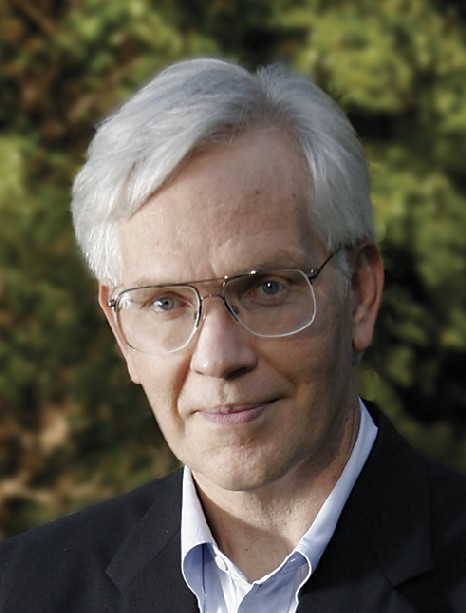Clarke's Wager
20 Nov, 2007 11:04 am
Pascal's Wager. Today, author Duncan Clarke asks us to make a kind of inverted Pascal's Wager in favor of continued abundance in world oil supplies. Is it a good bet?" data-pin-do="buttonPin" data-pin-config="beside">

Some 350 years ago, mathematician and philosopher Blaise Pascal argued that it is better to wager for the existence of God than against it since the benefits of believing in God are so great. The argument became known as Pascal's Wager. Today, author Duncan Clarke asks us to make a kind of inverted Pascal's Wager in favor of continued abundance in world oil supplies. Is it a good bet?
So it would seem that those such as Duncan Clarke who pillory the peak oil movement for its failed predictions of peak (of which there are quite a few) might seek to provide some precision as to the eventual fate of hydrocarbon man. His main arguments feature all of the usual responses to those who believe a peak is nearby: 1) The oil resource is very large and we've used only a small portion of it; 2) peak oil forecasters fail to take into account the growth in reserves that typically occurs in existing fields over time from a better understanding of those fields and from additional drilling; 3) future technology will increase oil recovery rates and discoveries; 4) the marketplace will direct investment into oil and its alternatives and quell demand through high prices; 5) and finally, peak oil models are too simplistic to capture all of these dynamics.
The adepts in the peak oil movement, that is, the petroleum geologists and modelers, have responded quite robustly to these arguments. Whether their responses are adequate and convincing is a topic for another day. Here I want to focus on a request by Strahan, who believes a peak is nearby, that Clarke give us at least some idea about when the oil age will begin to fade. To this Clarke responds that the issue is too fraught with nonlinearities to give an estimate.
It is curious that for Clarke all of the surprises in a world full of nonlinearity seem to fall on the side of more oil rather than less. But there is no reason for this to be so. With all its curves and unexpected changes of direction, a nonlinear system can go down as well as up. And so, in a way the admission by Clarke that we live in a nonlinear world, at least when it comes to oil production, defeats his whole case. For his case isn't really about oil per se, but about whether any immediate and purposeful preparations for a world of declining oil are necessary. What he is saying essentially is that because he can make out a strong case for continued abundance, we don't need to worry about doing anything just now about our oil dependence.
We'll call this Clarke's Wager, a sort of inverted Pascal's Wager about oil and the future of civilization. (I say inverted because Pascal's Wager at minimum obliges us to think about the moral life even if we reject his argument, while Clarke's Wager encourages us to take the easy route and move obliviously into the future without any changes.) Clarke is betting that we'll have a distant peak. This would obviate the need for any early preparations and thus any time or resources out of our current consumption that might be devoted to such preparations. Nor should we bother to change the way we live to meet such a challenge, at least not for some time to come. If Clarke is right, then we'll save ourselves as a society from some rather burdensome inconveniences for now. If he is wrong, however, we may all simply go down having made no preparations whatsoever for a possible catastrophe.
Wagering against Clarke would mean that we would instead move quickly to create a sustainable, nonfossil fuel based economy. Such a move would cost us something, perhaps a lot, in the short run; but sustainability is something we need to achieve for other reasons as well including climate change, threats to biodiversity, water depletion, deforestation, soil erosion, toxic pollution and other concerns.
Of course, it doesn't pay to worry about small things that may or may not happen. But, given the severe consequences that a nearby peak could have and the limits of our knowledge about the future of oil, whose side would you take in this bet, Clarke's or Strahan's?
-
12/12/12
Peak Oil is Nonsense Because Theres Enough Gas to Last 250 Years.
-
05/09/12
Threat of Population Surge to "10 Billion" Espoused in London Theatre.
-
05/09/12
Current Commentary: Energy from Nuclear Fusion Realities, Prospects and Fantasies?
-
04/05/12
The Oil Industry's Deceitful Promise of American Energy Independence
-
14/02/12
Shaky Foundations for Offshore Wind Farms






 Read more
Read more
Nobody is claiming that the peak will happen beyond 2040. Supposing it comes in 2040, then we have 3 decades to transform suburbia into something more sustainable. So, I guess if you love you children and grand children then this shouldn't be a 'debate' for you. Either way, they will be around when TSHTF and so we need to get moving now before it is too late.